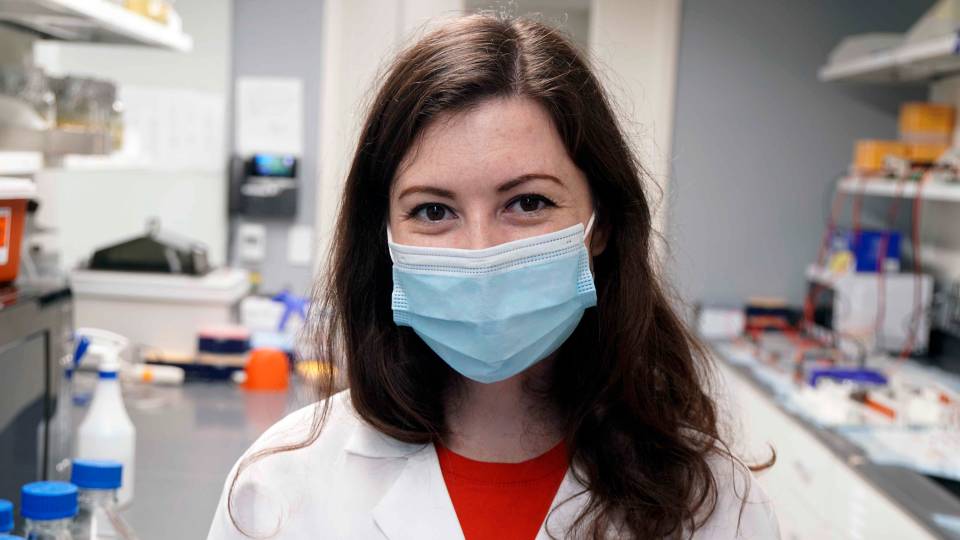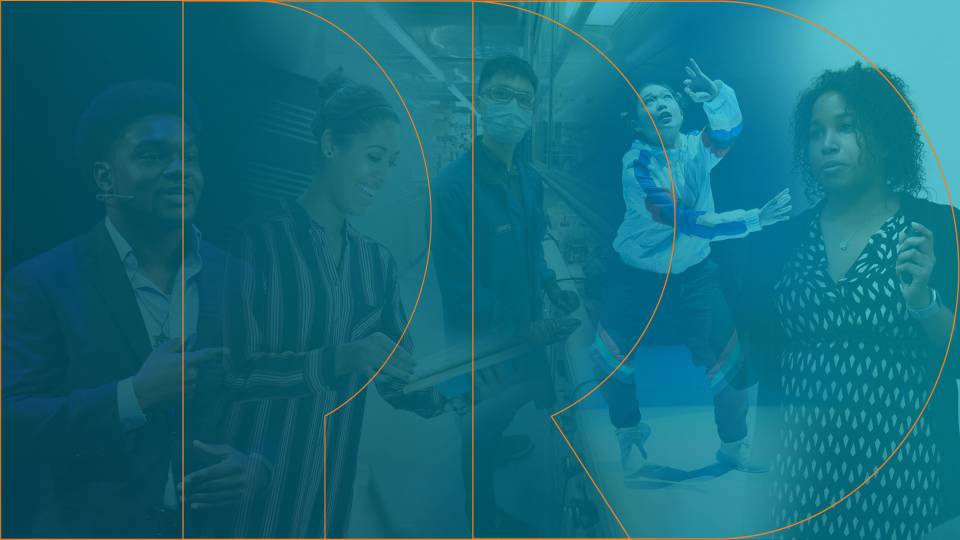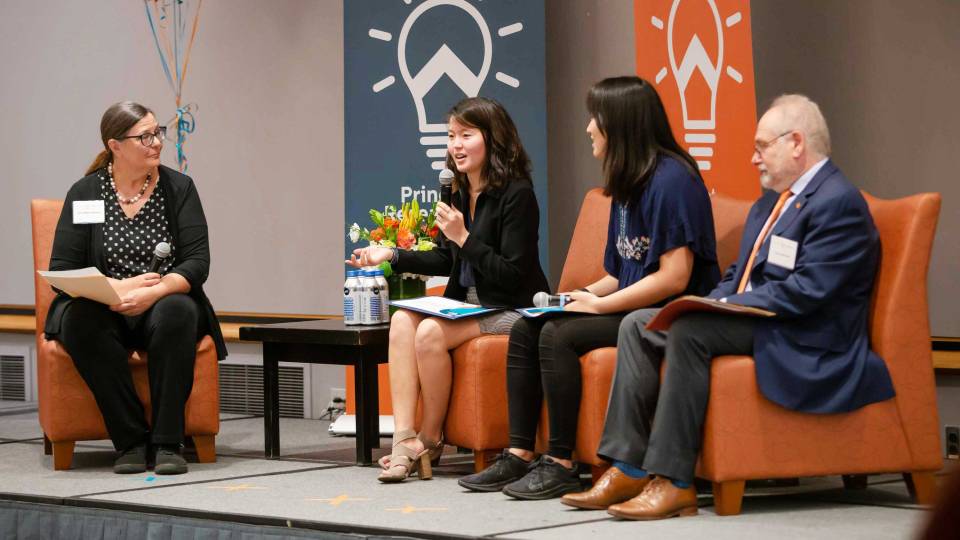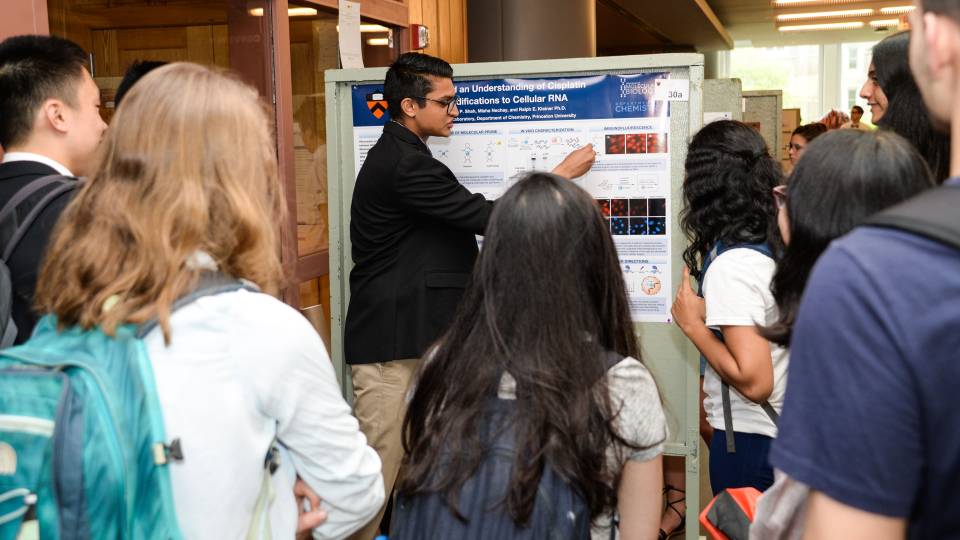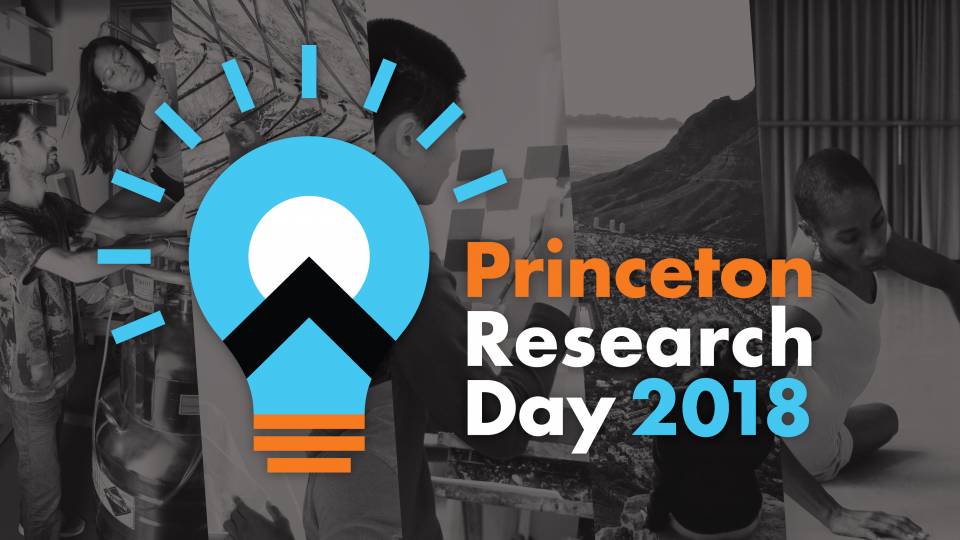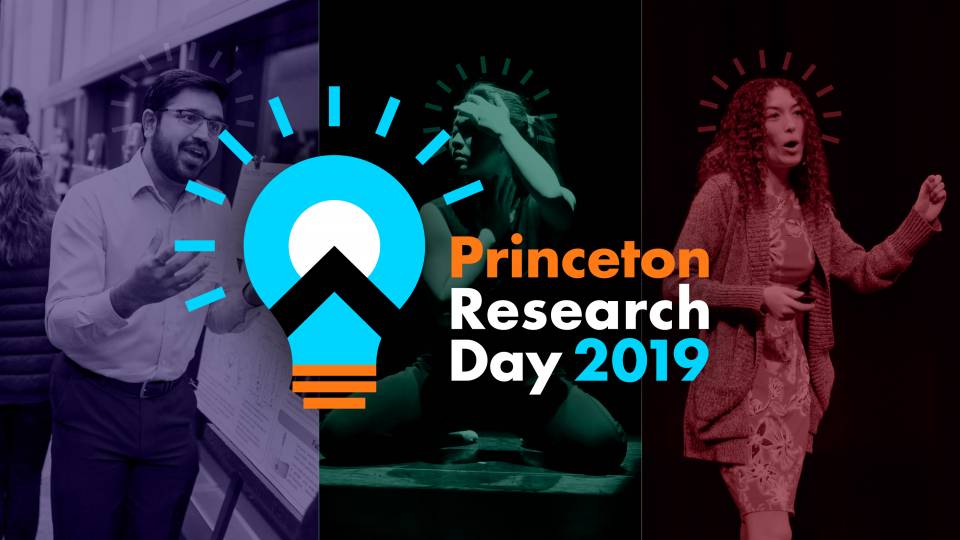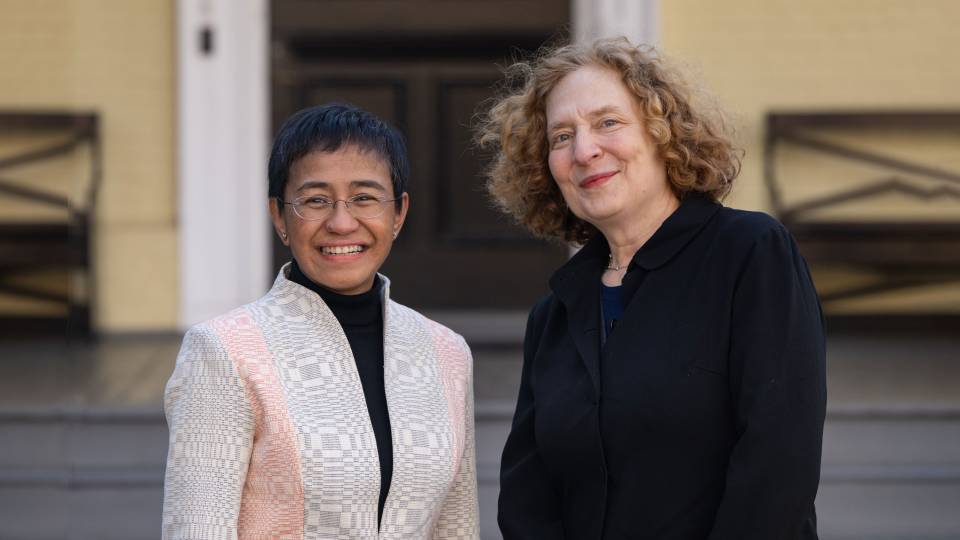Princeton Research Day 2021 wrapped last week with an inspiring virtual Mainstage event that showcased awardees and underscored the remarkable breadth of early-career research underway at Princeton University.
Undergraduates, grad students, postdoctoral and early-career researchers contributed more than 60 videos to the sixth annual, multidisciplinary event. Some 15 of the presenters were recognized online, fielding on-the-fly questions from public attendees who signed in from all over the country and as far away as Argentina.
What they saw were young scholars whose individual passions are driving the very research they’re pursuing here: a Ph.D. candidate working at the intersection of sustainability and biological processes; a rising senior fascinated by what memes tell us about language processing; a senior parsing the difference between societal data and community data. There was research on reindeer, Army officer talent, Black maternal mortality, prayer in a pediatric ICU, and a great deal of work on the cipher that is COVID-19.
Ultimately, this year's Princeton Research Day (PRD) demonstrated the undiminished creative inspiration that drives the University’s research enterprise, despite a pandemic that briefly shut down the University’s research labs.
“The truly remarkable thing is that, despite labs operating at reduced density and most non-lab researchers working remotely, Princeton’s research engine has kept humming along, producing a year in research that has exceeded all expectations,” said Dean for Research Pablo Debenedetti, Princeton’s Class of 1950 Professor in Engineering and Applied Science and professor of chemical and biological engineering. “In fact, 2020 was one of our very best years. I could not be prouder of our research community.”
The PRD closeout was hosted by Debenedetti; Dean of the College Jill Dolan, the Annan Professor in English and a professor of theater in the Lewis Center for the Arts; and Deputy Dean and Acting Dean of the Graduate School Cole Crittenden.
“At this particular moment in history, research like we’re seeing pieces of today is more important than ever,” Dolan said. “The truth-seeking mission of our University — a phrase that President [Christopher L.] Eisgruber likes to use — requires us to conduct our research with the truth in mind. Our research is evidence-based, fact-based and vitally important to how we survive as full human beings who live equitably, fairly and even lovingly among one another.”
Student and postdoctoral contributors honored PRD’s challenge to translate their research and creative products for an audience of non-experts through three-minute videos. The video submissions were judged by a panel of community members, business people and alumni based on five criteria: motive, main idea, scholarly approach, accessibility, and style and delivery.
Of PRD’s six award categories, the FitzRandolph Gate Award represents the “fan favorite,” chosen by popular vote by the Princeton community. This year, there was a tie between Kennedy Miller, Class of 2021, neuroscience, for her video, “An Investigation of the Female-Specific Behavioral Deficits Present in Autism”; and Temitope Oshinowo, Class of 2021, neuroscience, for her video, “Apples to Apples: Using a Patch Foraging Computer Task to Examine Cognitive Effort Costs, Physical Effort Costs, and Motivation in Real Life.”
The full list of this year’s award winners is available on the Princeton Research Day site.
At the May 6 event, award winners Molly Bremer and Niara Hightower, both rising seniors, answered questions about their striking computer-assisted entry, DISEMBODIED: Dancing in the Datascape. With their video, they said they hoped to “craft a performance space that processes tragedy, and a performance that both illuminates and interrupts the numbed zeitgeist that disembodied data, social distancing and digital life encourages.
André Luiz Koch Liston, an undergraduate concentrator in chemistry, also won an award for his video on iridium photocatalysts.
“I don’t like being the kid who quotes Einstein, but it fits perfectly: ‘If you can't explain [something] simply, you don't understand it well enough.’ PRD gave me that extra push to collect and review all thoughts on my research,” said Liston. “This made me realize how many of the facts I learned — while fundamental to conducting the project — are not necessarily relevant to explain or apply the knowledge. This grounded me. It forced me to consider the directions in which I want to take this investigation."
D.J. Rasmussen, a postgraduate research associate in public policy, also won an award for his video about the largest movable structures on Earth, storm surge barriers.
“As a scientist, you must to move from the super technical bits to something even your grandma can understand,” Rasmussen said. “I have lots of friends who aren't academics. I've learned that it's essential to tell a story and have a sense of your audience. It's a skill that takes time to develop and is a challenge in and of itself.”
Audience enjoyment was evident from the chat comments that floated up alongside the feed throughout the 90-minute program: “Congratulations Ryan! All of us at Whitman are so proud of you!”; “Such innovative ideas — great job Yidian and Nathaniel”; “Go Tess!!”; “This is so impressive! Congratulations, researchers.”
Videos submitted for this year's Princeton Research Day are available for public viewing on the PRD21 Channel on Media Central.
